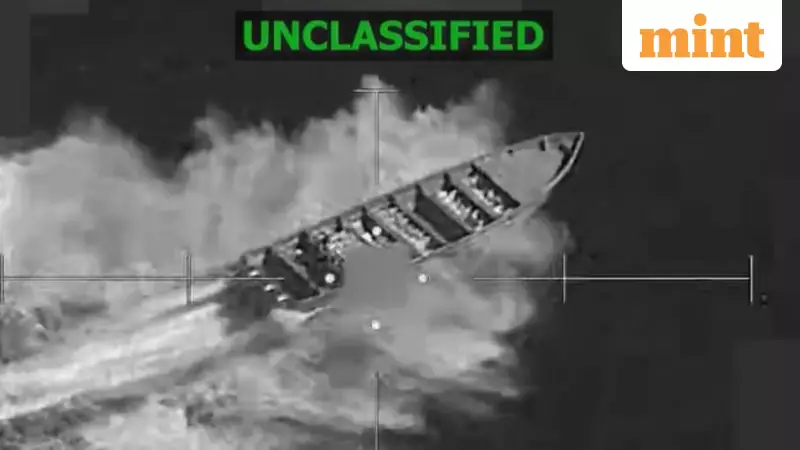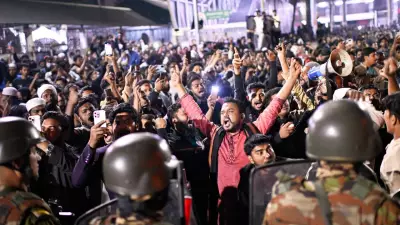
In a significant escalation of maritime counter-narcotics operations, the United States Navy has conducted its twenty-first strike against an alleged drug smuggling vessel, resulting in the deaths of three crew members. This latest military action comes as the Trump administration contemplates designating the Nicolás Maduro-led Venezuelan government as a terrorist organization for its alleged involvement in international drug trafficking.
Deadly Encounter in Caribbean Waters
The incident occurred when US naval forces intercepted a suspicious boat suspected of transporting illegal narcotics. According to official statements, the vessel failed to comply with multiple warnings and attempts to board, leading to the fatal engagement. Three individuals aboard the alleged drug boat were killed during the confrontation, marking another violent chapter in America's ongoing war against drug trafficking networks operating from Venezuela.
This represents the twenty-first such strike conducted by US forces in the region, demonstrating the continued commitment to disrupting narcotics routes through military means. The operation forms part of a broader strategy to combat the flow of drugs from South America to the United States and other international markets.
Trump Administration's Hardline Stance
The Trump administration is reportedly considering a dramatic policy shift that would designate the alleged Maduro-led cartel as a terrorist organization. This potential designation would represent a significant escalation in the US approach to dealing with the Venezuelan government and its alleged involvement in international drug trafficking.
This would mark the first time a sitting government is formally designated as a terrorist organization, setting a unprecedented precedent in international relations. The move follows years of accusations from US officials that Maduro and his inner circle have transformed Venezuela into a narco-state, using drug revenues to maintain their grip on power despite economic collapse and political opposition.
The proposed terrorist designation would enable the United States to impose additional sanctions and take more aggressive legal and military actions against Venezuelan officials and entities. It would also increase pressure on other nations to cut ties with the Maduro government or face potential secondary sanctions.
Regional Implications and International Response
The latest strike and potential terrorist designation have significant implications for regional stability in Latin America. Neighboring countries are closely monitoring the situation, concerned about potential spillover effects and the impact on regional security dynamics.
International reactions have been mixed, with some nations supporting the US position while others express concern about the precedent of designating a sovereign government as a terrorist entity. The move is likely to further isolate Venezuela diplomatically and economically, compounding the country's existing crises.
The Venezuelan government has consistently denied allegations of involvement in drug trafficking, characterizing US actions as politically motivated attempts to justify regime change. Venezuelan officials have accused the United States of violating international law with its maritime interventions and of fabricating evidence to support its narrative.
Human rights organizations have expressed concern about the escalating violence and the potential for civilian casualties in these maritime operations. They call for greater transparency and accountability in counter-narcotics operations that result in loss of life.
As the situation develops, regional analysts are watching for potential retaliatory measures from Venezuela and its allies, as well as the impact on global oil markets given Venezuela's significant petroleum reserves. The escalating confrontation represents one of the most significant geopolitical flashpoints in the Western Hemisphere, with implications that extend far beyond counter-narcotics operations.





